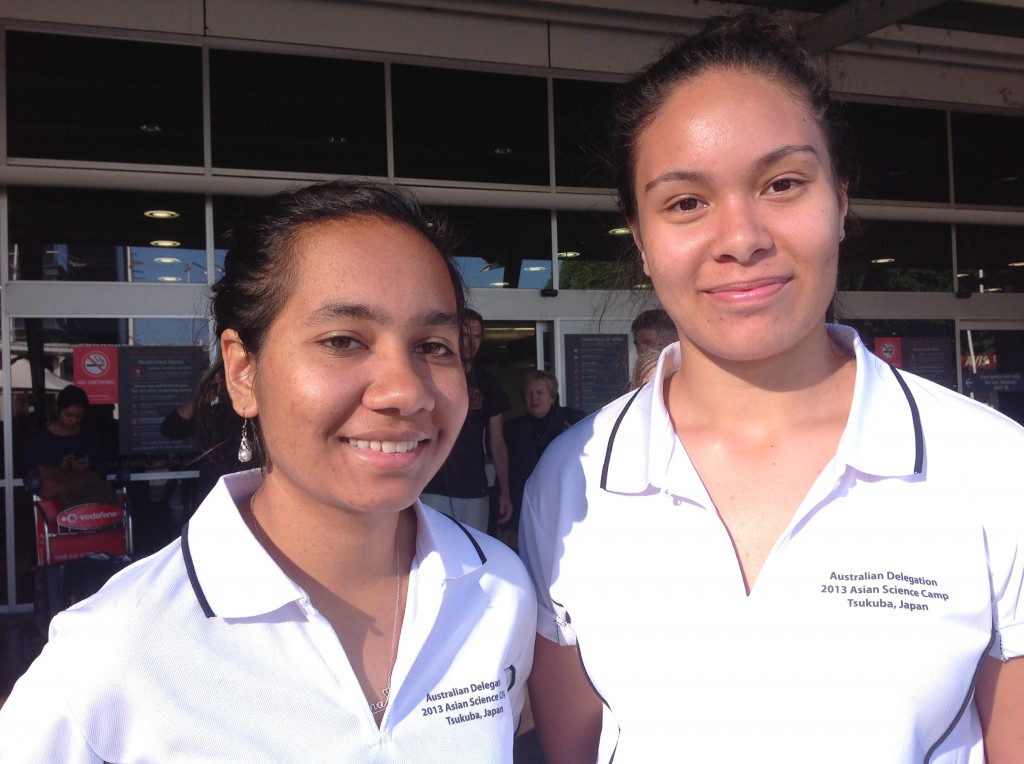Presbyterian Ladies’ College Sydney student Avea Sabatino has just finished her Year 12 Higher School Certificate and is looking forward to a future studying and working in a science-based career. She’s hoping to study a Bachelor of Engineering through Curtin University, WA, and eventually work in the mining sector.
Avea was one of two Indigenous science students who joined other talented young people from across Australia and Asia in a celebration of science and friendship at the 2013 Asian Science Camp held in Tsukaba, Japan, earlier this year.
The experience she brought back from the camp has confirmed her commitment to the sciences, particularly in the biology and chemistry fields that she started for her HSC.
“It was a lifetime experience and one that I will always remember. Over 200 students came together and we combined our science minds and discussed the world of science. We also had the opportunity to meet Nobel Laureates,” she says.
“The experience made me realise that science is not one view of the world but there are a multitude of ideas and theories.
“The Asian Science Camp also allowed me to possibly follow a career that further explores these areas of science, as well as being linked into the field of different types of engineering. The camp challenged you to think of other possibilities and theories that related to each field of science, as well as help broaden my knowledge of the diverse science world.”
Avea was able to learn from many ideas and theories discussed and shared throughout the camp and one of her favourite topics was cosmology.
“We discussed how the universe came about and the Big Bang Theory is just one of several theories. We looked at the possibility of the existence of several dimensions that we may not know about,” she says.
“That is the attraction of science for me that the unknown exists and scientists try and discover the truth about the mysteries we are confronted with.”
Indigenous students, like the overall Indigenous population, represent a minority within Australian society of less than 3% of the population. Avea is committed to the inclusiveness of Aboriginal and Torres Strait Islander people in science and science-related fields.
“As the First Peoples of Australia it is important that our voices are heard, especially in the areas of science where our contribution dates back many thousands of years,” she says.
“Some Indigenous people continue to practise sustainable hunting, fishing and farming and land management for example, and it is important that we work with the modern science community to capture and exchange knowledge and share information.”
The Asian Science Camp also provided Avea with the opportunity to meet and form friendships with other science students from Asia and Oceania.
“The camp provided Indigenous students with the ability to raise their profile internationally within the Asian community and I received a lot of interest from people who were keen to know about Indigenous Australian culture. But we were also able to bring this experience back with us and share with other Indigenous and non-Indigenous Australians,” she says.
“Overall the Asian Science Camp itself and the venue allowed the opportunity to travel to another country to come together with likeminded individuals and discuss science. This would have to be the best thing that I got out of attending the Asian Science Camp.
“I would definitely recommend others to give the Asian Science Camp consideration as it is a wonderful opportunity to experience communicating with people who have pursued science in their career and who are possibly looking into it in the near future.”
Avea was born on Thursday Island in the Torres Strait, but will be based in Perth while she studies for her Bachelor of Engineering. Post degree, she hopes to work in the mining sector and with a focus on sustainable mining and improving engagement and collaboration with the local Aboriginal communities.

Comments are closed.